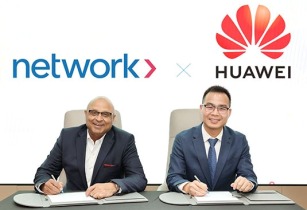Finland-based telecom equipment firm Nokia Networks has announced it strategy to focus on the network and broadband market in Africa in a bid to strengthen its presence across the continent
According to Deon Geyser, head of southern Africa at Nokia Networks, four major areas of the strategy are categorised as how to deliver content to end users in an efficient way, how to measure and manage end user experience, how to allocate and grow network capacity or resources in a flexible way and how to simplify network operations.
“Our broad strategy for Africa is to focus on all aspects of profitability for Mobile Network Operators in Mobile Broadband (MBB), categorized in four major areas,” said Geyser at AfricaCom 2014.
As he explained, the four major areas of the strategy can be categorized as: How to deliver content to end users in an efficient way, for example with their Content Optimizer, LiquidApps, QoS/application awareness; How to measure and manage end user experience, for example, with their CEM; How to allocate and grow network capacity/resources in a flexible way, for example, with their technology for traffic/load balancing, Core virtualization, application aware RAN; How to simplify network operations, for example, with their SGSN/RNC cloning, iSON.
“To support these operations Nokia Networks has strengthened its presence expanded their operations in Africa with the opening of new offices, for example in Nigeria and Libya this year, in addition to the existing ones,” stated Geyser.
“With this kind of increased focus on Africa, the company wants to help operators in Africa as a whole including South Africa and ensure its operational agility for delivery of its mobile broadband infrastructure and services for all operators.”
Discussing 2G, 3G and 4G deployment across Africa, Geyser said that Nokia Networks as a world specialist in mobile broadband, was committed to providing its advanced radio and core network technologies and to tap new areas with mobile broadband and further growth in 2G, 3G and 4G areas.
“Nokia Networks has currently partnered with all the major operators, with more than fifteen 2G, 3G and LTE contracts together in sub-Saharan Africa alone this year,” he said.
Nokia Networks announced it has deployed this year North Africa’s first commercial LTE network in Algeria for the state-owned operator Algérie Télécom, to provide subscribers with world-class LTE broadband service with high speed services and improved coverage. The LTE solutions enabled record high 150 Mbps broadband speed for Algerian subscribers. The company carried out the first successful LTE trial for Algérie Télécom in 2012. It has supplied its radio network for the majority of the LTE network, including the capital city, Algiers.
Furthermore, olleh Rwanda Networks (oRn), a joint venture between KT Corporation and the Government of Rwanda, has selected Nokia Networks as the sole supplier to provide the radio and core network, as well as managed services build the nation’s first commercial LTE network. “The Public Private Partnership has put Rwanda on the fast track towards setting up a robust and reliable telecommunications infrastructure,” said Geyser.
Nokia Networks over the past two years has invested in constructing a profitable Global Services Business. “With our Managed Services expertise, we are helping major operators in Africa for smooth network operation and maintenance as well as improved network and service performance at reduced operational cost. This is to ensure that our operator customers will be able to focus on their core business of providing the best possible services to their subscribers,” he added.
Etisalat Nigeria recently renewed its managed services contract with Nokia Networks for three more years with expanded services scope. “Nokia Networks will manage the operator’s 3G and GSM networks and improve network efficiency, ensuring the best possible mobile broadband service experience for end users,” stated Geyser. The company has been providing managed services to Etisalat Nigeria since 2008.
Sara Frewen



































